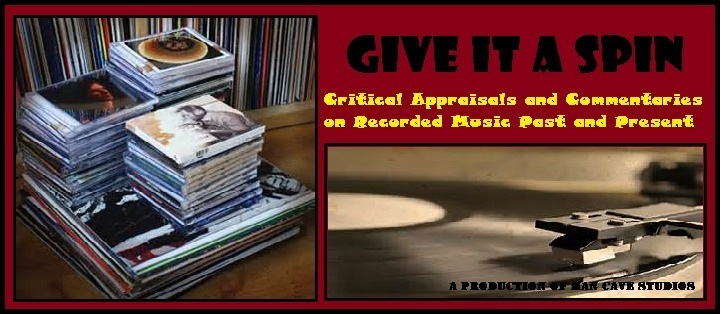Rage Against the Machine: Part I
This is the first in a four-part series of buzzes that recounts my experiences as a maverick manager working within the constraints of corporate America. You'll laugh, you'll cry and, perhaps, get an idea why the country ended up with throngs of voters backing Donald Trump for president.

If you've read any of my near-blasphemous buzzes or pot-stirring comments, you know I don't take things too seriously, anymore. But, it hasn't always been that way. I had a different attitude while I was a cog in the machine referred to as corporate America. It has its advantages and disadvantages. The health care deductions are reasonable, which keeps Obama-scare off your back. But, corporate demands and policies are befuddling, at best.
In my case, we were constantly barraged by demands to tighten our belts and do more with less, only to learn at the end of each fiscal year, that the company had once again reported record sales. However, it was like that million dollar wound suffered by Forest Gump while serving in Vietnam. As he said in the film, "Oh, yes sir. Bit me right in the buttocks.They said it was a million dollar wound, but the army must keep that money 'cause I still haven't seen a nickel of that million dollars." Contrary to corporate belief, under those circumstances, the company's apparent success does nothing to improve morale.
I climbed a few rungs on the ladder to success, but it was personal pride that drove me. I had no desire to become one of those completely out-of-touch CEOs. I enjoyed remaining close to the front lines. That's where the hand-to-hand combat takes place. That's where you can actually smell victory. To paraphrase Robert Duvall in the film "Apocalypse Now," I used to love the smell of napalm in the morning. It smelled like ... victory.
I suffered a few setbacks along the way, like being passed over for promotion because I happened to be better at my particular job than many of my co-workers. My managers didn't want to lose my productivity, and they told me so. It wasn't fair, but I learned a valuable lesson that came into play later. It was irritating to watch my less-productive co-workers, or outsiders, getting better jobs and being promoted over me, basically, because they couldn't successfully perform the jobs they held. It was a sub-category of the Peter Principle.
For the most part, I remained a good soldier, hoping that someday it would pay off. And, it did. But it was never easy, nothing was easy. It was as much a fight to the middle as it was to the top. I never came close to the top, but rest assured that no one else made it by stepping on me to get there, either.
I attribute that to the fact that my mother comes from strong Irish stock. She never saw a gray area. Everything was black and white and she knew right from wrong. She wasn't highly educated, but nobody pushed her around. Today, I'm more like my father, who makes friends as easily as walking down the street. We were both successful salesmen. As a result, I hold friendship in very high esteem. I eventually went into management, something my father steadfastly refused to do over his 31-year career, also with a large corporation.
My favorite catch phrase is, "Be careful what you wish for, you might just get it." Well, I got it all right. I finally received a decent promotion, but it nearly ruined my career. I was sent to another facility, with specific instructions to help turn the ailing operation around -- from a mid-management position. The general manager had come through the ranks of production, not sales, which was the key metric. So, the rudderless ship was floundering and headed toward the jagged rocks. Basically, I was expected to help resolve a problem the company itself had created. Didn't I recently mention something about out-of-touch CEOs?
The Enemy from Within
My new general manager knew exactly why I had been chosen to join his management team and he wasn't the least bit happy about it. He wasn't offered an opportunity to refuse my participation, which would make my life a living hell. Instead of welcoming my assistance, he clung to "Nobody is going to tell me how to do my job, especially some junior-level manager." On top of that, half of my new counterparts were his cronies, having been coddled while others were being terminated. They didn't want to be made to look bad, either. So, I was surrounded and would have to fight my way out..
My somewhat-personal war began in earnest the very first day. I was lured into a tried-and-true ambush by a foe I hadn't even considered to be a viable enemy force. I was wrong.
We were a union shop and the union representative was on my team. He told me in no uncertain terms that I was just another in a long line of managers who had come and gone. I soon found out it was a classic case of the tail wagging the dog. My predecessors had failed to inspire the team to reach the company's established numbers. Typical corporate bullshit. My team members knew the union would insulate them from any cruel and unusual punishment management, which was now me, could devise. All they had to do was fail at their jobs and I would sooner or later be cast aside, as well. It would be business as usual for them. It was quite the scheme and they went about implementing it like true professionals.
What they hadn't yet realized, was that I had come through the ranks, and knew the tricks of the trade better than they did. I had walked in their shoes. The managers before me had not. Haven't I already mentioned something in regard to the Peter Principle? It was time to rely on experience. I never studied psychology it in college, but I did minor in management science, most of which was total bullshit. You can't manage from a textbook. But, start with a little common sense, mix it with management theory, add a dash of human nature, and you can save your ass.
Funny How that Works
If you're a corporate manager, I wouldn't advise doing what I did to adjust my team's attitude. It's highly frowned upon. It kind of undermines corporate's theory of motivation. But, if it leads to success, you'll be a hero. Funny how that works. The only thing that matters is hitting numbers, anyway. How you do it is of no concern. Results always trump the means, unless its illegal. Resist any temptation. Your integrity and reputation are paramount to hitting any corporate numbers.
I never broke any rules, but I did bend them a bit. Basically, it was because I have always believed that my team members were more important than any corporate directives, which have a habit of changing without prior notice. Corporate American no longer values its people. Nonetheless, if you're a manager, you live or die according to the success or failure of your people. You lean on the strong and support the weak. You'll need them all.
My team members were referred to as route sales representatives, but they were mainly deliverymen. However, they were expected to sell additional products to current customers and acquire new customers, which involved the dreaded exercise known as cold-calling. I used to enjoy cold-calling. One of the ways I became a successful salesman, was to sell 24/7. I don't know how many construction site supervisors I approached to find out what company was moving into the new building. I would frequent restaurants and bars that weren't already our customers on my way home from work, survey their needs, and propose our services. My bosses began to think I spent my life in bars. However, they never refused the additional business.
For my team, the issue was quotas. They were required to make a certain number of sales calls per week and maintain a prescribed sales quota. They couldn't be bothered. It took up too much of their time. Most were already working 12-hour days, five days a week. They had families and a life to live. I'd been there and done that, too. It does suck. But, I had figured out a way to beat the system.
The union contract was extremely vague in regard to quotas of any kind. It stated that team members were only required to make "an effort" toward meeting company objectives. There were no specific quotas listed within the contract, which made the company's requested numbers nothing more than a wish list. That's why team members could virtually fail at the their jobs and remain employed, while managers, who were held to the numbers, dropped like flies. For team members, everything was extremely subjective, which made it easy for the union to thwart terminations. Managers, on the other hand, were left without a leg to stand on.
By the way, we were the only company in the entire industry that was union. It was nearly impossible to be terminated once you completed your probation period, although there were a few who figured out how they could lose their jobs.
Thriving on Stress
So, if you're a manager who thrives on stress, corporate America is calling. If you're looking for a job where failing to perform is the norm, make sure there's a union. From my experience, unions really only work to protect the jobs of underperformers and guarantee a decent starting, and steadily increasing, wage. However, union dues are steadily on the rise, too, because business agents like to drive big, fancy cars. When union elections come around, the candidates will stop by with a dozen doughnuts to be shared among 30 of its members, and drop off a handful of cheap ink pens with the local unions number embossed on them. That's a fact. I started out in the union, too, of which you usually can't decline membership in, if you want the job.
As a route sales representative, I consistently ranked among the top 10 percent in the organization, with numerous branches nationwide. I must say, I was rewarded accordingly. The company certainly knew how to throw a party, I was included in a three-day weekend for top producers on Bourbon Street in New Orleans. Corporate managers, at all levels of the organization, have an affinity for alcohol consumption, and they'll share it with their top producers.
To find out how I successfully bent the rules and was eventually forced to rage against the machine, please read the second buzz in this series.
Articles from Randy Keho
View blog
Just like business has become more challenging, designing and building signs has become more demandi ...

My son popped the question yesterday, on the anniversary of their first date, and my soon-to-be daug ...

What could be more perplexing today than trying to define rhythm and blues? · Record company executi ...
Related professionals
You may be interested in these jobs
-

Digital Marketing Manager
Found in: Lensa US 4 C2 - 1 day ago
Whiteboard Risk & Insurance Solutions California, United StatesWe are looking for a skilled Digital Marketing Manager to join our insurance agency's marketing team. As a Digital Marketing Manager, you will be responsible for developing, maintaining, analyzing, and updating our agency's marketing efforts. You will work with stakeholders from ...
-
Autonomous Systems Test Engineer
Found in: One Red Cent US C2 - 1 week ago
The Johns Hopkins University Applied Physics Laboratory Laurel, United States· Are you searching for meaningful Test and Evaluation work supporting the vigorous pursuit of advancing AI and autonomy to revolutionize air, strike and electronic warfare? · Do you enjoy collaborating with an energetic and talented team of scientists and engineers to help ensu ...
-

Long Term Acute Care
Found in: Talent US A C2 - 6 days ago
Epic Travel Staffing Sidney, United States TravelEpic Travel Staffing is hiring a Travel RN - LTC · Shift: Days, 5:45a-6:15p, 12x3, 36hrs per week · Length: 13 weeks · Requirements: · MT or Compact License · 1 year experience · BLS · Epic Travel Staffing: · Day 1 health insurance coverage and comprehensive benefits options · 40 ...

Comments
Randy Keho
7 years ago #11
I've already posted the second buzz. Enjoy.Gerald Hecht
Phil Friedman
7 years ago #10
Phil Friedman
7 years ago #9
Randy Keho
7 years ago #8
Graham🐝 Edwards
7 years ago #7
Jim Murray
7 years ago #6
I'll take that under advisement.
Randy Keho
7 years ago #5
Your critiques ans assistance are always welcome. But, watch out, I bite.
Randy Keho
7 years ago #4
Jim Murray
7 years ago #3
Kevin Pashuk
7 years ago #2
Randy Keho
7 years ago #1
Good catch. I'll have to correct that. That what happens when you work without a net (an editor).